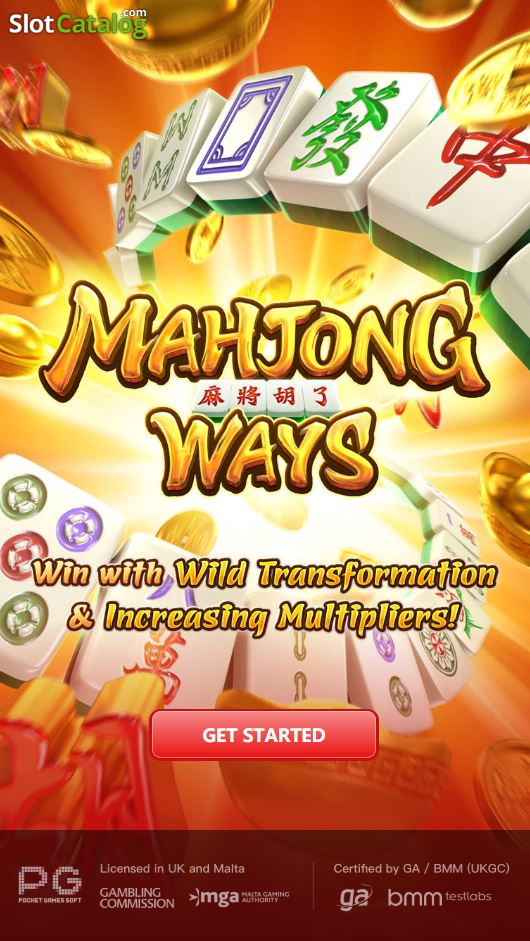Mahjong Ways is not just a game; it is a captivating blend of strategy and social interaction that fosters essential cognitive skills. In today’s fast-paced world, where brain health and memory improvement are increasingly vital, engaging in a game like Mahjong Ways serves as a delightful escape and a mental workout. Research shows that participating in leisure activities, particularly those that require strategic thinking like Mahjong, can significantly enhance memory and promote cognitive flexibility. The game’s intricate patterns and social dynamics not only sharpen your mind but also encourage deep connections with friends or family. Join us as we explore how Mahjong Ways can enrich your life by boosting your cognitive abilities while strengthening your social ties.
Engaging in the world of Mahjong, especially through variants like Mahjong Ways, presents a unique opportunity to develop sharp cognitive functions and meaningful social interactions. This traditional tile game transcends mere entertainment by offering participants a platform to enhance their memory and cognitive skills. Many enthusiasts find themselves fostering social bonds as they strategize, share experiences, and compete in a friendly environment. By engaging in this timeless game, players not only engage their brains but also create lasting relationships with others. Let’s explore the myriad benefits of diving into this enjoyable and enriching pastime, from improving mental agility to enhancing connections in both personal and communal contexts.
Cognitive Enhancement through Mahjong Ways
Engaging in the game of Mahjong Ways can play a pivotal role in enhancing various cognitive functions. Players actively participate in strategic decision-making, where they must analyze their opponents’ moves while simultaneously planning their own. This ongoing mental calculation stimulates the brain, leading to improved problem-solving skills and better memory recall. According to research published in *Frontiers in Psychology*, such interactive gameplay enhances brain plasticity, allowing it to adapt and improve over time, particularly among older players who can benefit from regular mental engagement through leisure activities such as Mahjong.
Moreover, the nature of Mahjong Ways, which involves pattern recognition and visual-spatial skills, further contributes to cognitive growth. The necessity to navigate complex rules and maintain focus across a lengthy game not only sharpens memory but also increases cognitive resilience. Players find that these developed skills extend beyond the gaming table, positively affecting their daily life tasks, leading to heightened awareness and improved memory in everyday activities.
Social Benefits of Engaging in Mahjong
The social interactions fostered through playing Mahjong Ways create a unique platform for community bonding. Whether played with family or friends, the game encourages communication and storytelling, weaving memories into the fabric of social connections. As players immerse themselves in the game, they share experience and strategy—these elements enrich relationships and strengthen emotional ties. Numerous studies, including findings from the Asian Journal of Social Psychology, highlight that such interactions significantly elevate feelings of social support, assisting individuals in coping with life’s challenges through the art of leisure activities.
Additionally, the evolution of Mahjong into online formats has expanded social connections beyond geographical boundaries. During times of social isolation, players have resorted to virtual Mahjong sessions, allowing them to reconnect and maintain friendships without physical proximity. This transition underscores the importance of social interaction in enhancing mental health, revealing how virtual platforms can effectively replace in-person connections. Thus, Mahjong serves not only as a game but as a bridge that keeps relationships alive and thriving amidst life’s uncertainties.
Frequently Asked Questions
How does playing Mahjong Ways enhance cognitive skills?
Playing Mahjong Ways significantly boosts cognitive skills through strategic gameplay that requires complex mental processes such as problem-solving, pattern recognition, and memory recall. Studies indicate that regular engagement in Mahjong enhances visual-spatial skills and improves decision-making abilities, making it an effective leisure activity for cognitive development.
What social benefits can be gained from playing Mahjong Ways?
Mahjong Ways fosters social interaction by creating a lively atmosphere for players to communicate, share strategies, and strengthen emotional bonds. This game encourages teamwork and camaraderie, crucial for maintaining relationships, especially during challenging times when players can connect online to combat loneliness.
| Key Points | Details |
|---|---|
| Introduction | Mahjong Ways enhances cognitive skills and social connections, serving as both entertainment and a mental workout. |
| Cognitive Benefits | 1. Development of Cognitive Skills: Improves strategic thinking, memory recall, and brain plasticity. 2. Boosting Attention Span: Enhances working memory and concentration abilities. |
| Social Benefits | 1. Strengthening Social Interaction: Fosters camaraderie and emotional bonds among players. 2. Cultural Connection: Facilitates the transfer of traditions across generations. |
| Conclusion | “Mahjong Ways” is not just a game; it enriches cognitive abilities and social interactions, supporting overall well-being. |
Summary
Mahjong Ways is more than just a game; it stands as a connection between various aspects of life, fostering sharp cognitive skills while cementing social bonds. Engaging in this delightful pastime can help players unlock mental agility through strategic play, while simultaneously offering an engaging environment for meaningful interactions. Whether at family gatherings or online with friends, Mahjong Ways resonates with generations, bridging cultural connections and enhancing memories. Embrace the game and witness how it can significantly elevate your cognitive and social experiences!
